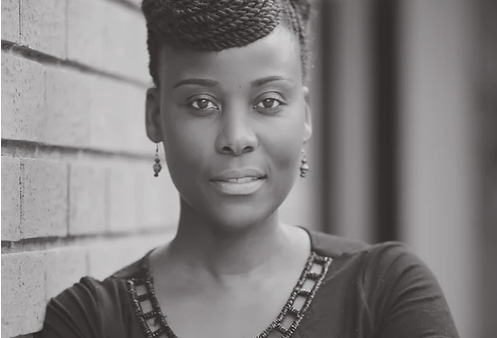GOSEGO MOTSUMI
From the bustling streets of Harare, sweeping through the arid dust bowl of Botswana and taking the reader to the lush mountains in South Africa, author Brigitta Zwani’s latest novel, “Hope,” takes bookworms on a whirlwind tour of the southern half of the sub-continent. “Hope” offers a different outlook on life, cementing the fact that life not panning out the way it was planned is not enough reason for anyone to bury their head in the sand or throw a tantrum.
“Readers will learn to love and hate the characters, cry and laugh with them, run and rise for them,” Zwani says. “This book teaches us to make use of what we have and enjoy life in the process, the good and the bad. ‘Hope’ is about acceptance of self and of the environment we find ourselves in.”
The book chronicles the story of Andi and Khavu who are barely teens yet must learn to fend for themselves in a world were danger is always lurking around the corner. Andi, the older sibling, scurries and claws to make ends meet, but no matter how much he tries he is always short. It also brings out the story of Tracy, a young graduate from Malaysia who has lost everything. Every time she tries to rebuild, everything comes tumbling down.
Zwani: “I started writing it in 2018. At first I was just writing, but as the story unfolded I realized it’s about issues that affect us all; issues that should not be condoned in society such as Gender Based Violence, abandonment, child labour, abduction, poverty and xenophobia.”
“Hope” is the author’s second book after releasing her debut novel, “The Shrink,” in 2018. “The Shrink” is the amalgamation of an authentic plot and relatable characters in a fetching psychological thriller that inspires hope in adolescents dealing with similar issues to those of the characters. It delivers a dose of perspective into the reality of the challenges facing many of Africa’s youth. “People who have read ‘Hope’ indicate that the writing style is different and that the storyline is totally different from my previous work,” say the author. ‘The Shrink’ helped me to heal as I laid some events of my past life to rest.”
Zwani is a warmhearted wordsmith and publisher at Biggles Boggles who has successfully fused her craft with her desire to encourage hope and uplift African youth.
AN EXCERPT FROM THE BOOK:
My dearest Khavu and Andi, I hope life is treating you well in Harare. I have been struggling along in this hot dry country for almost a year with no success. I know the fact that I don’t have much of an education, let alone the right papers, doesn’t help.
My boss is very cruel and pays me less than I am worth. The people here are not very friendly. I would say they are bordering on xenophobic. They call us makwerekwere, which means foreigners in a demeaning way.
There are days I have to go to a middle-class area called Phase Two to line up on the road with some of my friends and beg for work. When I do go to Phase Two, I go prepared to run. Running from the police. Running from the soldiers. Running from dogs. Running for work. Running for food. Running for water. Just plain running. I nearly got caught once by the police, but managed to jump a fence into a yard full of ruthless dogs. I was lucky to get out of there alive.
The population here is so small that sometimes I feel lonely. I get homesick. Longing to hear my mother tongue. Missing the smells. Missing the noise. Missing the late nights. Missing home. I don’t know how anything really works here. From the public transport to the ridiculous heat. But I am sure I will survive.
Did I mention how hot this place is? It gets so hot that sometimes I am fearful I will melt. I would sleep on the cement floor at the place I am renting with ten others hoping that the floor will cool me. But I find that the floor itself is hot. The water that comes out of the tap is boiling hot. The sand is hot, the walls are hot. And even the girls are hot.
It’s so hot Andi that people actually die of heat strokes. There was an announcement the other day that people should drink a lot of water. What’s ironic is that though they say drink a lot of water, there is no water to drink. The water cuts are ridiculous. We can go for weeks without water. I have only managed to survive by getting water from my boss’s place. When I do their garden I am able to drink the water from their big green Jojo tanks. They say it is grey water. But it looks pretty clear to me, though it has a bit of an aftertaste.
The land is dry Andi. You and Khavu wouldn’t like it. Back home it is so nice and green. Here in Botswana it is soooo brown. The trees are brown. The ground is bare and brown. Even their white people look brown.

